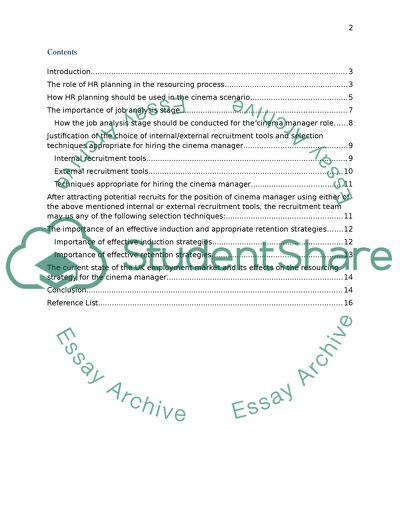Cite this document
(“The role of HR planning in the resourcing process Essay”, n.d.)
The role of HR planning in the resourcing process Essay. Retrieved from https://studentshare.org/human-resources/1498142-ychyou-are-the-hr-manager-of-a-large-cinema-chain
The role of HR planning in the resourcing process Essay. Retrieved from https://studentshare.org/human-resources/1498142-ychyou-are-the-hr-manager-of-a-large-cinema-chain
(The Role of HR Planning in the Resourcing Process Essay)
The Role of HR Planning in the Resourcing Process Essay. https://studentshare.org/human-resources/1498142-ychyou-are-the-hr-manager-of-a-large-cinema-chain.
The Role of HR Planning in the Resourcing Process Essay. https://studentshare.org/human-resources/1498142-ychyou-are-the-hr-manager-of-a-large-cinema-chain.
“The Role of HR Planning in the Resourcing Process Essay”, n.d. https://studentshare.org/human-resources/1498142-ychyou-are-the-hr-manager-of-a-large-cinema-chain.


